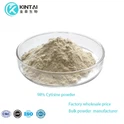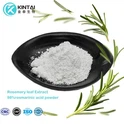In the pursuit of optimal health and well-being, modern science continuously uncovers natural compounds with remarkable potential. Among these groundbreaking discoveries, DHM Dihydromyricetin stands out as a potent antioxidant that's rapidly gaining attention in the wellness community. This powerful flavonoid, derived from the Japanese raisin tree and certain vine tea species, offers a plethora of health benefits that make it a compelling addition to any wellness regimen.

What is Dihydromyricetin (DHM) and How does it work as an antioxidant?
Dihydromyricetin, also known as DHM or ampelopsin, is a flavonoid compound found naturally in several plant species, most notably in the Japanese raisin tree (Hovenia dulcis) and certain types of vine tea. As an antioxidant, DHM plays a crucial role in neutralizing harmful free radicals in the body, which are unstable molecules that can damage cells, proteins, and DNA.

The antioxidant properties of DHM are attributed to its unique molecular structure, which allows it to donate electrons to free radicals, effectively neutralizing them. This process helps to mitigate oxidative stress, a condition linked to various chronic diseases and accelerated aging.
Beyond its direct antioxidant action, best dihydromyricetin dhm also enhances the body's innate antioxidant defenses. It has been shown to boost the production and activity of endogenous antioxidant enzymes such as superoxide dismutase (SOD) and catalase. This dual-action approach - directly neutralizing free radicals while simultaneously bolstering the body's own antioxidant systems - makes DHM a particularly effective antioxidant.

Moreover, DHM's antioxidant effects extend to specific organ systems. In the liver, for instance, DHM has demonstrated hepatoprotective properties, shielding liver cells from oxidative damage and supporting the organ's crucial detoxification functions. This makes DHM particularly interesting for those seeking to support liver health or recover from alcohol-induced liver stress.
How does DHM compare to other antioxidants in terms of efficacy?
When evaluating the efficacy of antioxidants, several factors come into play, including bioavailability, potency, and versatility. DHM distinguishes itself in these areas, often outperforming more well-known antioxidants.
Compared to quercetin, another popular flavonoid antioxidant, DHM exhibits superior bioavailability. This means that a higher percentage of best dihydromyricetin dhm is absorbed and utilized by the body when consumed orally. Enhanced bioavailability translates to greater efficacy, as more of the active compound reaches its intended targets within the body.

In terms of potency, DHM has shown remarkable free radical scavenging abilities. Some studies suggest that DHM's antioxidant capacity is several times higher than that of vitamin C, a benchmark antioxidant. This high potency allows DHM to provide significant antioxidant protection even at relatively low doses.
DHM's versatility is another key advantage. Unlike some antioxidants that primarily target specific types of free radicals, DHM demonstrates broad-spectrum antioxidant activity. It effectively neutralizes various types of reactive oxygen species (ROS) and reactive nitrogen species (RNS), providing comprehensive protection against oxidative stress.

Furthermore, DHM's antioxidant effects are complemented by its anti-inflammatory properties. Chronic inflammation and oxidative stress often go hand in hand, exacerbating each other in a vicious cycle. By addressing both issues simultaneously, DHM offers a more holistic approach to cellular protection and overall health maintenance.
What does current research say about the effectiveness of Dihydromyricetin?
The scientific community has shown increasing interest in DHM, with a growing body of research exploring its potential health benefits. While many studies are still in preclinical stages, the results thus far are promising and point to DHM's diverse therapeutic potential.
One area of significant interest is DHM's impact on alcohol metabolism and its potential to mitigate alcohol-related harm. Research conducted at the University of Southern California found that DHM could reduce alcohol intoxication in rats and alleviate withdrawal symptoms. These findings suggest that DHM might be beneficial for individuals looking to support liver health or manage alcohol consumption.

In the realm of neurological health, DHM has shown neuroprotective properties. Studies on animal models of Alzheimer's disease have demonstrated that DHM treatment can reduce memory loss, anxiety, and levels of beta-amyloid peptides associated with the disease. These results hint at DHM's potential as a supportive therapy for cognitive health and neurodegenerative conditions.
DHM's cardioprotective effects have also been a subject of scientific inquiry. Research indicates that dihydromyricetin dhm hovenia dulcis extract may help maintain healthy cholesterol levels and support cardiovascular function. By inhibiting the oxidation of LDL cholesterol and reducing inflammation in blood vessels, DHM could play a role in preventing atherosclerosis and supporting overall heart health.

In the field of metabolic health, studies suggest that DHM may have positive effects on insulin sensitivity and glucose metabolism. This makes it a compound of interest for individuals concerned about metabolic syndrome or type 2 diabetes. By improving insulin signaling and glucose uptake in cells, DHM could contribute to better blood sugar control and metabolic health.
While these research findings are encouraging, it's important to note that many studies are still in early stages, and more human clinical trials are needed to fully understand DHM's effects and optimal usage in humans. As research progresses, we can expect to gain more insights into the full potential of this promising antioxidant.
Conclusion
In conclusion, DHM Dihydromyricetin emerges as a potent and versatile antioxidant with wide-ranging potential health benefits. From its powerful free radical scavenging abilities to its organ-specific protective effects, DHM offers a comprehensive approach to cellular health and overall wellness. As we navigate the complexities of modern life and its associated health challenges, incorporating DHM into our wellness routines could provide valuable support for our body's natural defenses and overall vitality. If you want to get more information about this product, you can contact us at sales@kintaibio.com.
References
1. Liang, J., et al. (2012). Dihydromyricetin As a Novel Anti-Alcohol Intoxication Medication. Journal of Neuroscience, 32(1), 390-401.
2. Hou, X., et al. (2015). Ameliorative Effects of Dihydromyricetin on Atherosclerosis via a FOXO1-Mediated Pathway. Scientific Reports, 5, 10757.
3. Shen, Y., et al. (2012). Dihydromyricetin as a novel anti-diabetic agent in vitro and in vivo. PLoS One, 7(11), e50625.
4. Kou, X., & Chen, N. (2012). Pharmacological potential of ampelopsin in Rattan tea. Food Science and Human Wellness, 1(1), 14-18.
5. Zhang, J., et al. (2014). Protective effects of dihydromyricetin against γ-irradiation-induced damage on human umbilical vein endothelial cells. Medical Science Monitor, 20, 2143-2150.
6. Qiu, P., et al. (2017). Dihydromyricetin as a novel anti-Alzheimer's disease candidate: A systematic review. Food & Function, 8(9), 3295-3306.







